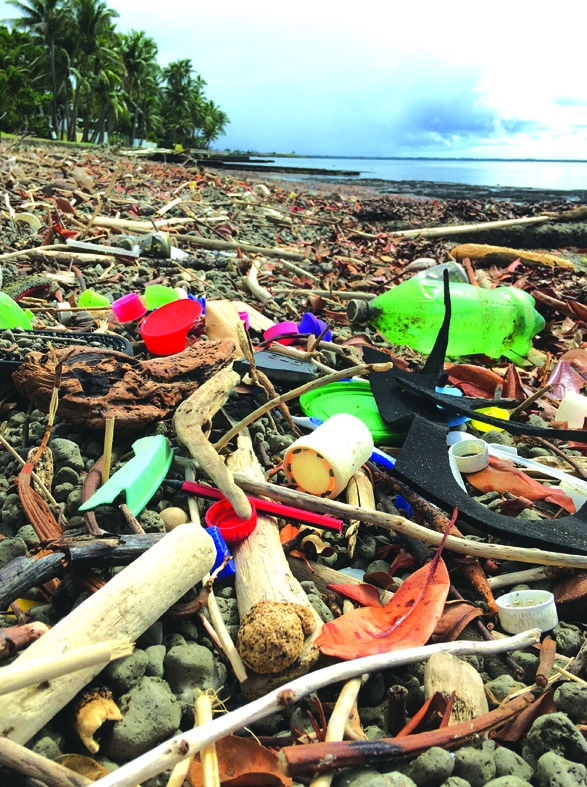Visit the Plastic Adrift website and you can place a little rubber duck on a spot of your choice and see how plastic pollution spreads. Place your duck just off the east coast of Australia, and the simulation shows marine pollution spreading like a rash over Pacific island seas and territories.
Plastic Adrift is a project of Imperial College (London), Utrecht University (Netherlands) and the Australian Research Council’s Centre of Excellence for Climate System Science. It shows in an engaging way how ocean currents drive plastic and other waste across the globe, some 8 – 10 million tonnes per year according to the United Nations.
Of course you don’t need a fancy computer simulation to show you how much of a problem plastic ocean waste is. Pacific seafarers, coastal dwellers, fishers and divers can see it clearly for themselves.
Despite heightened awareness of the problems of managing plastic waste, global plastic production continues to grow. The Center for International Environmental Law (CIEL) estimates production will grow 33-36 per cent over the next five years.
After climate change, plastic waste management is arguably one of the region’s most visible and topical environmental issues. Unregulated and disposed of carelessly, plastic litters beaches and clogs drains and rivers, creating mosquito-friendly (and therefore dengue and malaria-friendly) environments. In some dumps it contributes to the leaching of damaging elements into the ocean, lagoons and other waterways. A recent New Zealand report, Rethinking Plastics, found that 33 of 34 commercial fish species had evidence of ingested plastic across four South Pacific locations. Fish eat plastic and we eat fish.
In the Pacific, plastic bag bans are most often linked to the values of environmental (particularly ocean) stewardship, resource management and climate change concerns. For example, Federated States of Micronesia President, David Panuelo told his country, “In order for the [FSM]’s Climate Change pleas to be taken seriously by the global community…We must lead by example. This new ban on disposable plastic, which allows the importation of reusable and recycled plastic, shows that it is possible to be environmentally conscious while still retaining sensitivity to the conveniences appreciated by citizens and the business community.”
